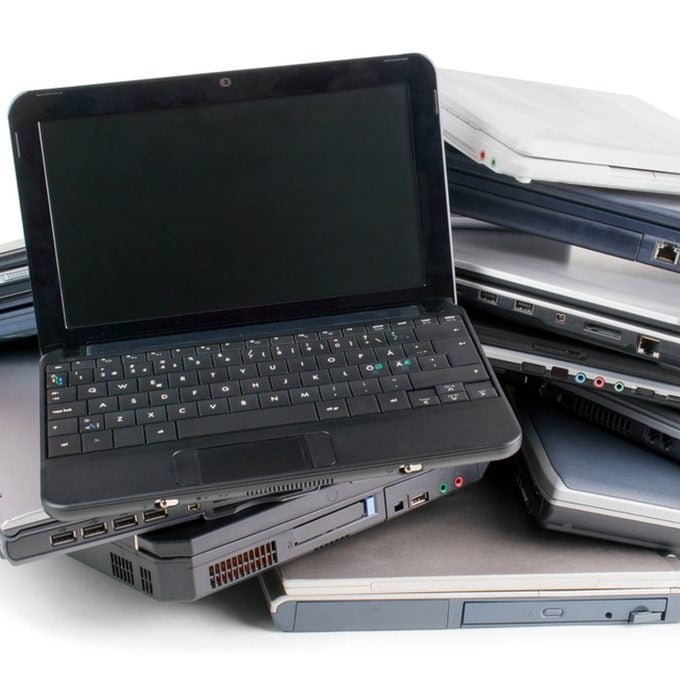You’ve probably gotten a few new computers through the years, but what have you done with the old ones? Instead of letting your old computer collect dust, consider selling it, recycling it or donating it.
What To Do with Your Old Computer

Don’t Let Your Old Computer Collect Dust
If you have a few outdated laptops collecting dust in your home, you’re not the only one. In a survey conducted in the spring of 2016 by the Consumer Reports National Research Center, more than half of the subscribers who purchased laptops since 2012 confessed to letting them linger around the house long after they’d been replaced. This is called the “pile of denial.” And it is best to sell or recycle your electronics as soon as you know you’re done using them. This is because electronic depreciation happens fast, so by the time a device gets to a recycler or put up for sale online, nearly all of the initial value is gone, making it even more difficult to refurbish or sell.
And this raises a good question. How do you go about finding a new home for an old computer or laptop? Here are a few options to consider:
Things to Do with an Old Computer: Sell It
Selling your used electronics saves the environment because you are recycling the electronics that you don’t use anymore. And believe it or not, there’s a solid market for old tech. Between eBay and Craigslist, you should have no trouble finding someone to take an unwanted computer off your hands.
If you have a broken or even a fully functional old laptop, there are many companies online who are willing to buy your old device from you. These companies include HP, Best Buy, Target, eBay and Gazelle. There are plenty more companies who offer these services, so do a little research to see which is best for you.
Additionally, before you sell a digital device to someone you don’t know take a few precautions to protect your privacy. You don’t want bank account info, personal images or your browsing history lingering on your old computer.
When reselling an old computer or laptop, you’re best off removing the hard drive. (Just be sure to note that it’s gone when you place the item for sale.) The website ifixit.com offers tear-down tutorials to walk you through the process, and the only tool you’ll need to do this is a screwdriver. There are also free downloadable softwares that will overwrite your data.
Things to Do with an Old Computer: Recycle It
Did you know that electronic waste, including old computers, is the fastest growing waste stream globally? This is due to both the shortened lifespan of our electronic devices and societies demands for the newest high-tech products.
Electronics’ can be properly recycled at local trusted electronic recyclers. The E-cycling Central website allows users to select their state and city to find a trusted recycler nearest them. Additionally, many electronic recyclers offer pick-up services and collection events.
There are also ways to assure that your old electronic equipment is handled by a reputable recycler. It is important to check to see if your electronics recycler is first looking to see if old equipment can be reused before it is sold for parts. Reuse is always more environmentally sound and will give devices an extra couple years of usability.
If refurbishment is not an option, reputable recyclers will use mechanical shredding and a high-tech separation device to take out the usable metals, which can then be sent to a smelter.
Things to Do with an Old Computer: Donate It
It’s always nice to give back, and a used computer is a valuable tool to a family without the resources to buy one. If you’d like to donate a laptop to a family in need, the National Cristina Foundation and the World Computer Exchange can help you make that happen.
It is also a great idea to donate old electronic devices because of the phenomenon of the “digital divide.” The digital divide is the economic, educational, and social inequality between those who have computers and internet access and those who do not. If a family doesn’t have a computer, it makes it difficult for children to do their homework, write papers, do research and for family members to apply for jobs online.
Even a five- or six-year-old computer can have a second life for a home in need. To locate a nearby nonprofit in need of equipment, you can check out the hundreds of pre-screened organizations listed on the National Cristina Foundation website.
Here are 10 more things you should know about recycling your electronics.



















